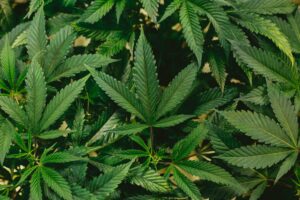NAVIGATING THE LEGALITIES OF TESTING EMPLOYEES FOR MARIJUANA USE
 Employers for decades have performed drug tests on employees to determine if they are fit for employment on a day-to-day basis. Often drug testing was only performed as a qualification for employment. In other cases, employers would do routine drug testing to ensure that employees were not using illegal drugs once employed. In other instances, employers would only perform drug tests if they had a suspicion that employees were working under the influence of illegal drugs. Marijuana use is now legal in New York State. Employers are now unsure if the same rules apply; THEY DO NOT.
Employers for decades have performed drug tests on employees to determine if they are fit for employment on a day-to-day basis. Often drug testing was only performed as a qualification for employment. In other cases, employers would do routine drug testing to ensure that employees were not using illegal drugs once employed. In other instances, employers would only perform drug tests if they had a suspicion that employees were working under the influence of illegal drugs. Marijuana use is now legal in New York State. Employers are now unsure if the same rules apply; THEY DO NOT.
Employers are no longer permitted to perform drug tests for cannabis use, either prior to or during employment. Even if the employer suspects that an employee is under the influence at work, they are not legally permitted to drug test for cannabis. Of course, there are limited exceptions, employees that hold commercial licenses, truck drivers, school bus drivers and pilots can still be tested.
Employers that perform dangerous work, such as construction, often test their employees for any drug that could impair their ability to work. Obviously, any impairment could create a serious safety hazard, so employers likely assume that they are still permitted to drug test for cannabis. THIS IS INCORRECT. Absent a specific legally recognized exception, cannabis testing of employees (or candidates for employment) is simply not permitted.
Does this mean employees can show up for work impaired based on cannabis? It does not. Employers can still require employees to not be intoxicated or high when performing service. If the employee has an “articulable symptom of impairment” the employer is permitted to take appropriate disciplinary action against the employee. The exact definition of same, or how it applies in a case-by-case basis, remains uncertain. Employers simply must use their eyes and ears and experience and determine if the employee shows signs of impairment, and if so, act quickly. In essence, it’s no different than alcohol use. It’s legal, but that doesn’t mean employees can come to work intoxicated.
Like so many other laws, New York employers must be both aware of this shift in law and take steps to modify their policies. As always, if they do not, the consequences could be significant, ranging from Department of Labor fines and penalties to private causes of action for discrimination.
